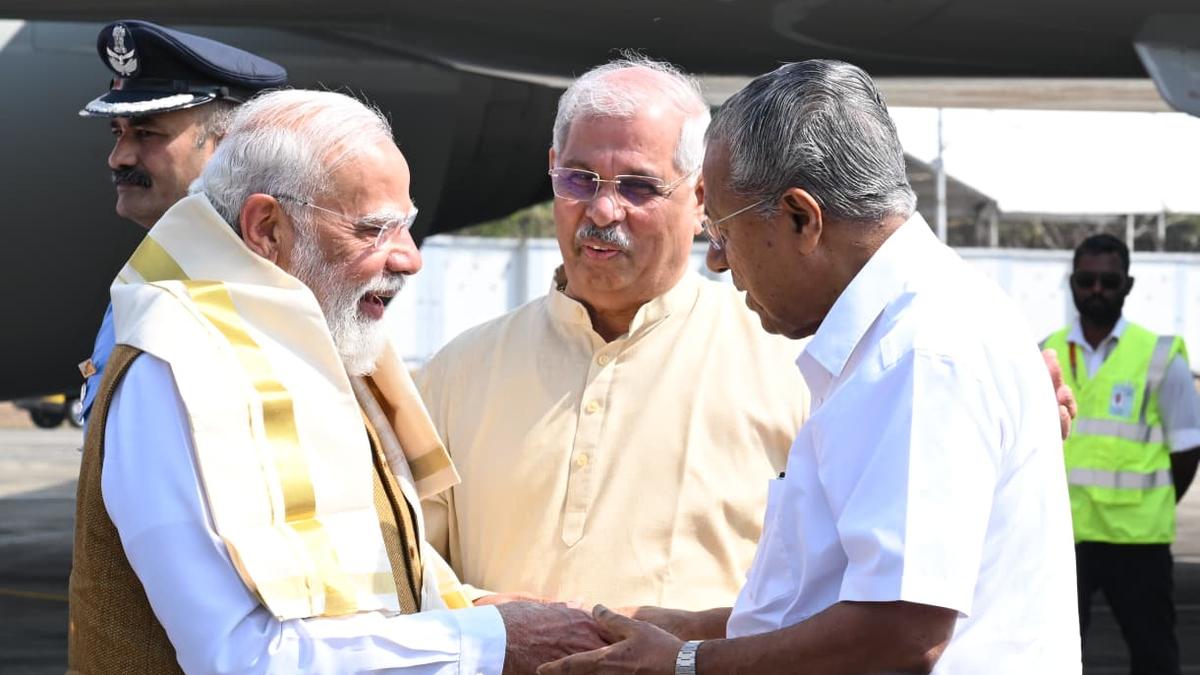Plans for the India-Middle East-Europe-Economic Corridor (IMEC) cannot proceed without some progress on the Palestinian question, Egypt’s Foreign Minister Badr Abdelatty said on Friday (October 17, 2025), adding that Egypt would be interested to join all such connectivity projects once the situation is “conducive”.
Mr. Abdelatty told a group of journalists that he had discussed the IMEC project with External Affairs Minister S. Jaishankar during the first India-Egypt Strategic Dialogue on Friday (October 17), and also proposed that India join the Egyptian Suez Canal Economic Zone (SCZONE), where Russia, China, and a few other countries already have separate industrial complexes.
He also called on Prime Minister Narendra Modi, who praised Egyptian President Abdel Fattah Al-Sisi for the Gaza Peace Plan signed with United States President Donald Trump this week.
Derailed by Oct 2023 attacks
The IMEC was launched during the G-20 in New Delhi in September 2023 by a number of countries including India, the United Arab Emirates, Saudi Arabia, the U.S., and the European Union, and is meant to be routed via Israel’s Haifa port. The project floundered within a month, however, after the October 7 terror attacks in Israel and the Israeli bombardment of Gaza.
While welcoming all connectivity projects “between the east and west”, Mr. Abdelatty said that the aspirations of the Palestinian people for their own State was necessary for peace and security in the region, and it would not be possible to run a cross-regional connectivity project like the IMEC without it.
“If we are serious about having final peace and security, a comprehensive deal and the security for Israel and the whole region, the only solution is to respond positively to the legitimate aspirations of the Palestinian people to have their own statehood, to have their own independent state,” Mr. Abdelatty said in response to a question from The Hindu.
“When October 7, 2023 [terror attacks by Hamas] happened, and then there was escalation [due to Israel’s retaliation against Gaza], everything about normalisation, about connectivity, stopped for a single reason,” he said, adding that the region cannot be normalised without “resolving the [source] of the conflict in the region, which is the Palestinian question”. Nearly 70,000 people, including about 1,150 Israelis, and about 68,000 Palestinians, including 20,000 children, have been killed in the conflict since October 2023.
Next steps for Gaza peace plan
Mr. Abdelatty briefed journalists on the elements of the Gaza Peace Plan, signed at an event in Sharm el Sheikh attended by more than 20 world leaders. The next step would be to take a draft resolution so the UN Security Council can begin the process of building an “International Stabilization Force” to maintain the peace in Gaza as the Israeli Defence Forces (IDF) leave, he said. A 15-member Palestinian Administration Committee is being finalised to manage Gaza for a transitional period until the Palestinian Authority is empowered to deploy there, he added.
During the talks on Friday, Mr. Jaishankar also highlighted India’s historical support to Palestine.
“India has been consistent in its support for a two-state solution. We have significant development cooperation with Palestine and are committed to enhancing capacity building, human resource development and strengthening Palestinian institutions,” Mr. Jaishankar said in his remarks, which were released by the Ministry of External Affairs.
Indian industrial zone
Turning to bilateral matters, Mr. Abdelatty said that India and Egypt have committed to doubling bilateral trade from the present level of $5 billion, with particular potential in the areas of chemicals, minerals, pharmaceuticals, phosphates, digital technology, artificial intelligence, and renewable energy.
“We have a special industrial zone for China and for Russia in the SCZONE and we are encouraging an Indian industrial zone where we would provide all facilitation and incentives to Indian companies,” he said, adding that India would be able to export goods beyond Egypt, with its population of 120 million, to a market of more than “two billion inhabitants” across Africa, South America, Europe, and Arab countries that are connected to Egyptian ports through free trade agreements.
Published – October 17, 2025 11:00 pm IST


